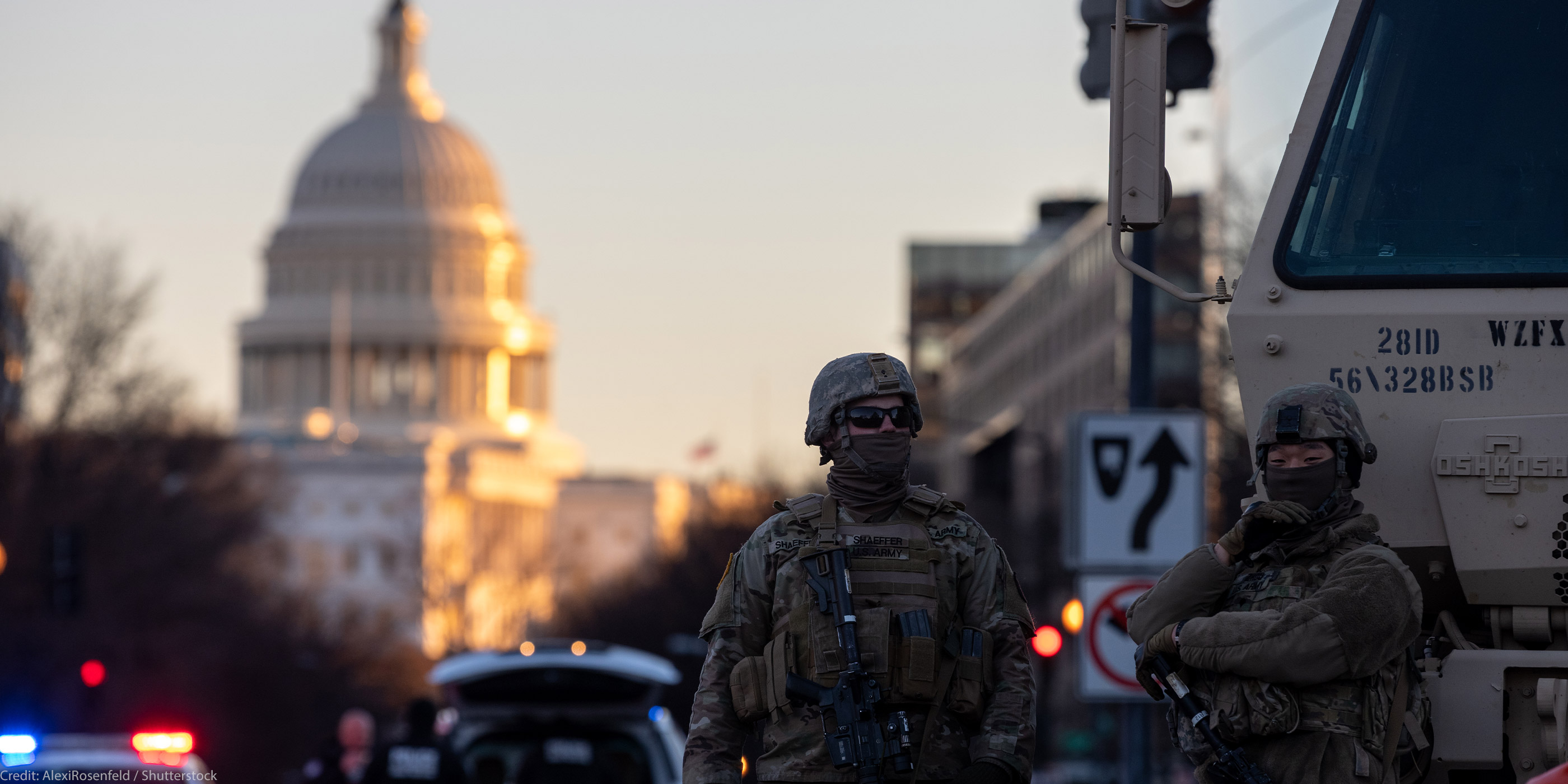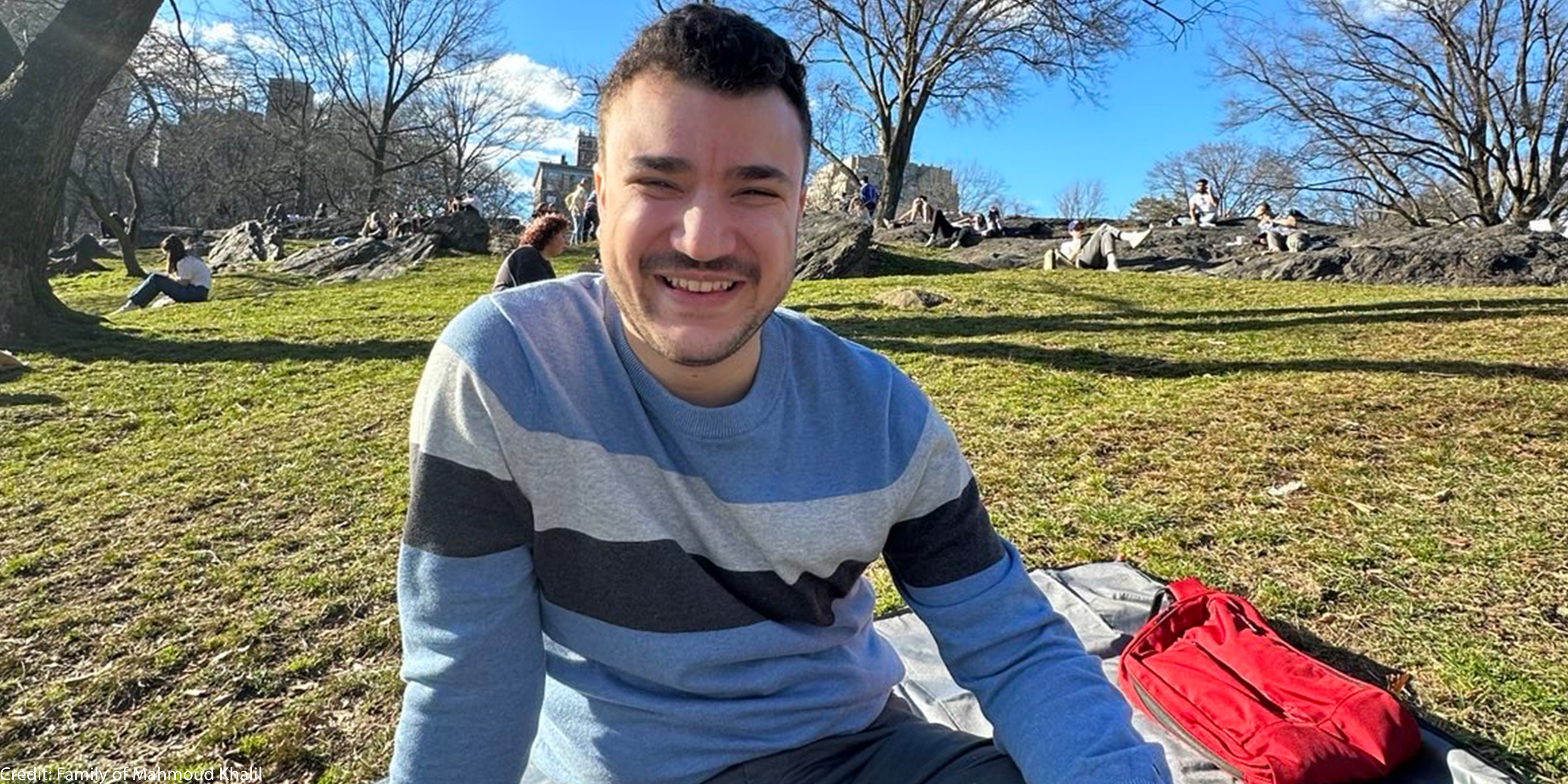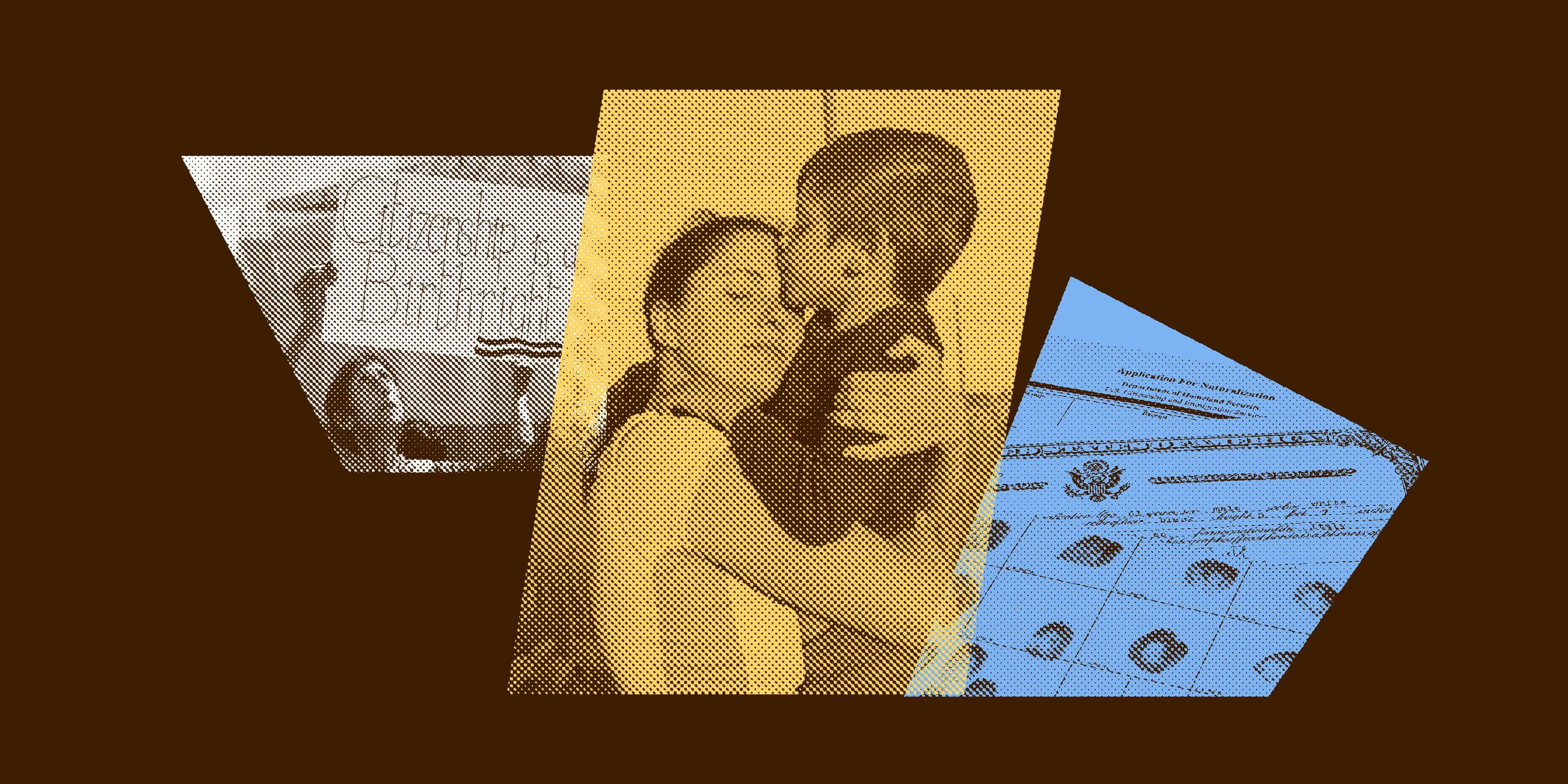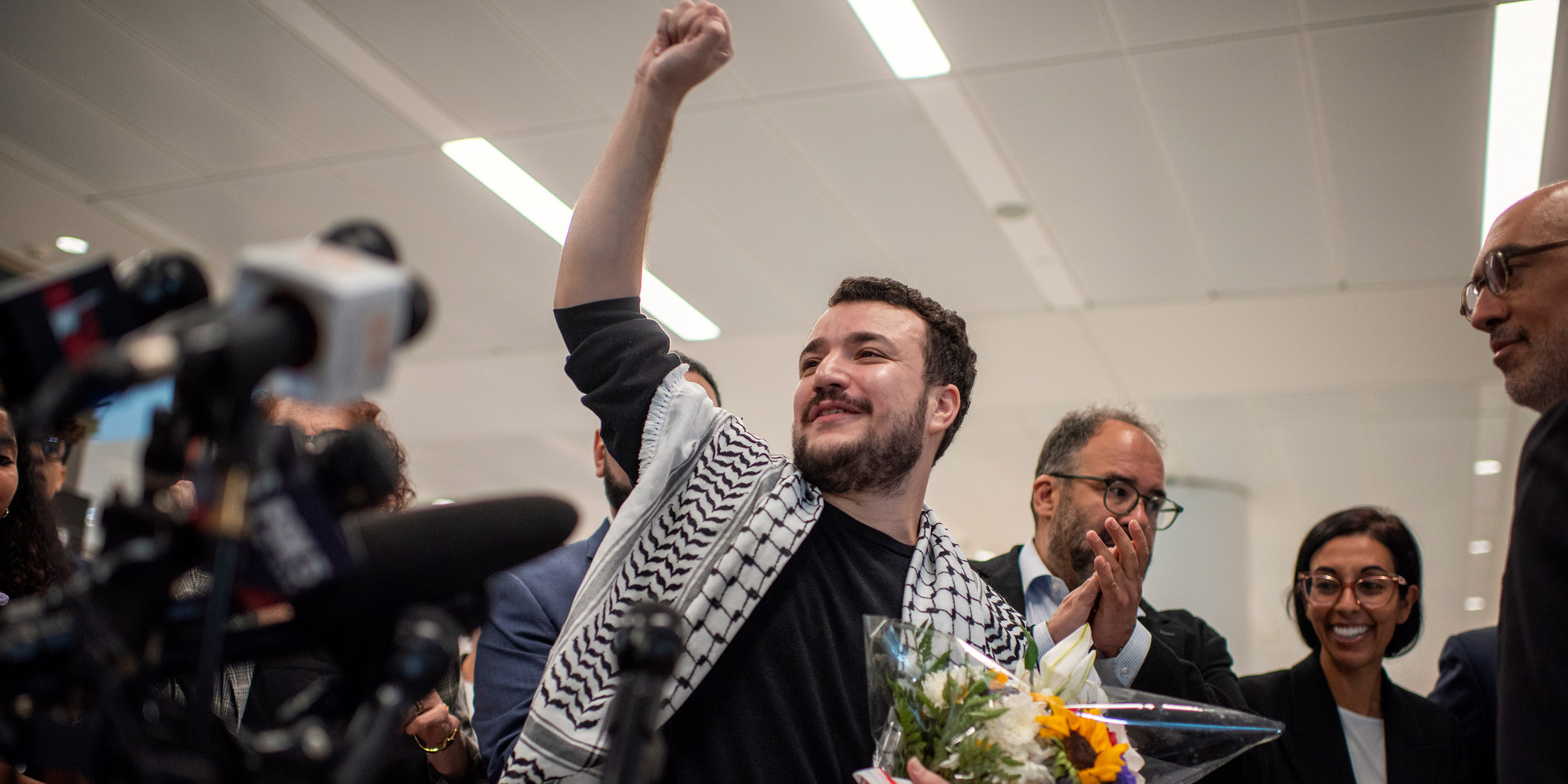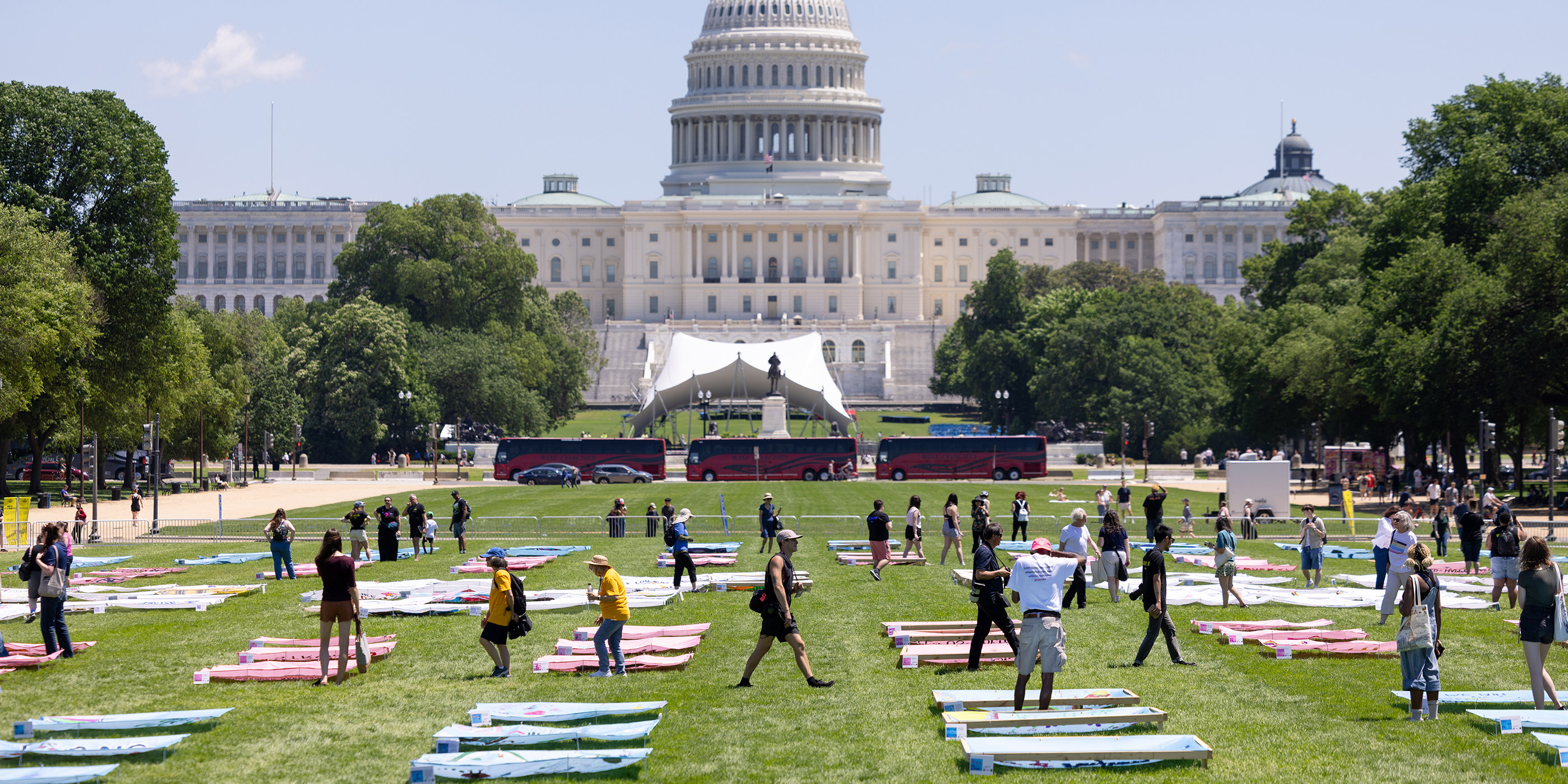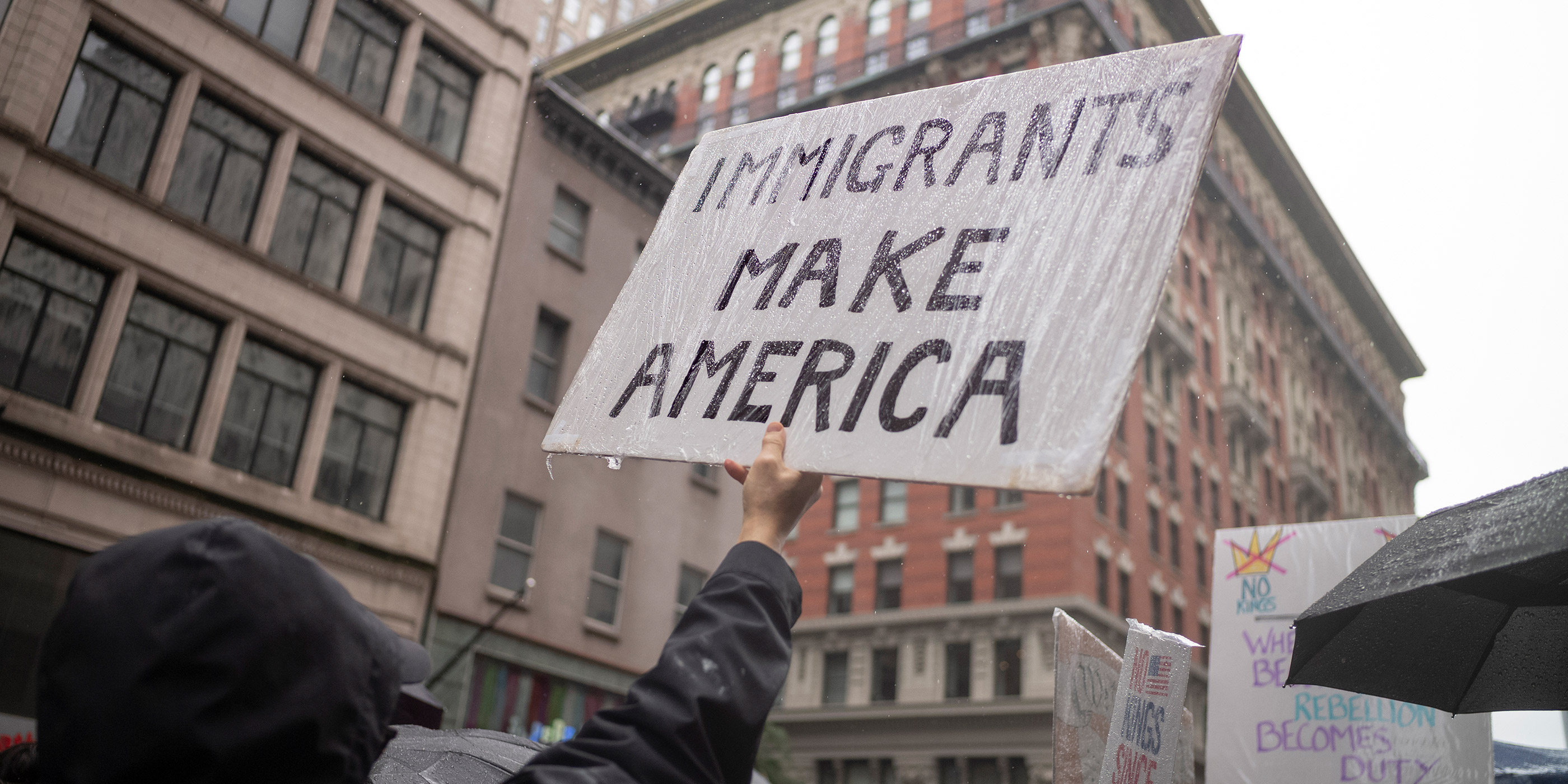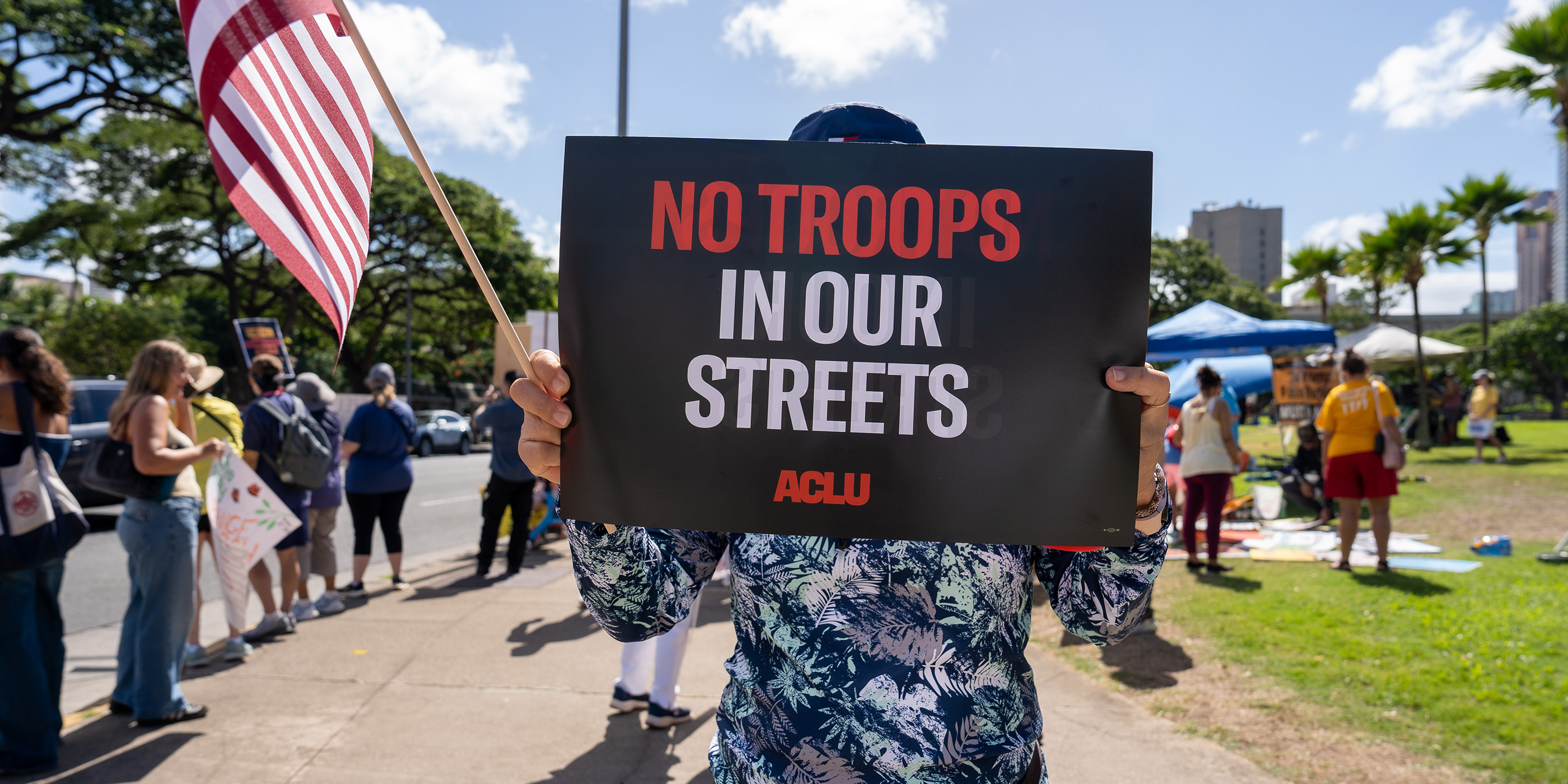If a president can murder civilians at sea and keep the legal justifications secret, we should all be concerned. The harm is even worse when basic factual evidence, such as full videos and orders, are also hidden from the American people.
Since September, the Trump administration has ordered 26 lethal strikes on civilian boats in international waters, killing 99 people and upending countless lives. The administration continues to push unsubstantiated, fear-mongering claims about who these people were, despite investigations showing that some of those killed were fishermen just trying to make a living for their families. The administration also refuses to release the secret memo that purports to provide a legal justification for these killings, or the full, unedited videos of the strikes themselves.
The danger is not just the body count, horrific as it is. It’s the precedent: a president asserting the power to redefine civilians as “combatants,” and pretend he has the authority to grant advance immunity to federal officials for killing people. That is an egregious abuse of power with life-or-death consequences, and it will only stop if the courts, Congress, and the public make clear that this cannot continue.
Why Trump’s Boat Strikes Memo Must Be Made Public
Under both U.S. and international law, it is flagrantly illegal to use the military to kill civilians suspected only of crimes. The United States is not in an armed conflict with anyone in Latin America. That means the people on these boats are civilians. Civilians, including those suspected of smuggling drugs, are not lawful targets. Just because The Trump administration says these strikes are firmly grounded in law doesn’t make it true.
The Trump administration is relying on a secret opinion from the Justice Department’s Office of Legal Counsel (OLC) to justify these ongoing strikes. This memo reportedly details the Trump administration’s legal reasoning behind a couple of its totally incorrect conclusions: that the strikes are lawful because the United States is in an “armed conflict” with unspecified drug cartels, and that the officials who have authorized or carried out these strikes should not be prosecuted for murder or other crimes. Even as legal experts from across the political spectrum have debunked these claims, the administration has refused to release the OLC memo or any related records.
That’s why the ACLU, the Center for Constitutional Rights, and the New York Civil Liberties Union (NYCLU) have filed a lawsuit demanding the immediate release of the OLC opinion and related documents about these boat strikes. If the Trump administration is relying on an OLC opinion to justify killing civilians in international waters, the public has a right to read it. Our lawsuit argues that the government has violated the Freedom of Information Act by refusing to release any records, despite FOIA’s clear deadlines and the urgent public interest in understanding how the administration is attempting to legally rationalize ongoing killings. We cannot be a nation of secret laws.
The devastation wrought by the Trump administration’s secret legal reasoning is not hypothetical. On September 2, after Secretary of Defense Pete Hegseth reportedly gave an order to “kill everybody” on a boat in the Caribbean, according to media accounts, Admiral Frank Bradley ordered one or more additional strikes on two civilians who survived an initial strike and were ultimately killed after clinging to the boat’s wreckage for more than 40 minutes. After watching the video of this apparent “double-tap” strike, Democratic Rep. Jim Himes of Connecticut, the ranking member on the House Intelligence Committee, said to reporters, “What I saw in that room was one of the most troubling things I’ve seen in my time in public service.” When questioned about these heinous strikes, the White House press secretary insisted that they were carried out “in accordance with the law of armed conflict,” citing the “DOJ Office of Legal Counsel opinion and other related documents.”
We’re asking a court to step in. The president doesn’t have the power to create a private, secret legal universe where cold-blooded murder of civilians can be recast as lawful policy. Courts ordering disclosure of these documents is a crucial step toward transparency, accountability, and stopping the strikes.
Congress Must Demand Transparency and Accountability Now
At the same time, we’re pushing Congress to do its job: conduct real oversight, in public. We know that when the U.S. government is implicated in horrific and criminal conduct, transparency cannot wait. For example, in 2008, after reporting revealed that the U.S. was torturing prisoners at a US-run prison in Iraq known as “Abu Ghraib,” the Senate Armed Services Committee moved within days to hold public hearings with the defense secretary and the chairman of the Joint Chiefs of Staff. By contrast, more than three months after the boat strikes, Congress has not held any hearings on the killings. Everything has been behind closed doors, other than the bits of video that Hegseth wants the public to see.
We have also made clear that oversight cannot stop with the “double-tap” strike, but must probe all the illegal strikes. As the ACLU explained in a letter to the Senate Armed Services Committee, while killing shipwrecked survivors is undoubtedly unlawful and grotesque, so too are the other 24 strikes that have been carried out in our name. As a chorus of legal experts have repeatedly explained, the United States may not use lethal force against any of the civilians in these boats. Upholding the rule of law means stopping illegal killing in its entirety, not just addressing its most nightmarish moments.
Even members of Congress who support the strikes, like Republican Senator Lindsey Graham, agree that the full unedited videos should be released. Military officials have repeatedly told members that they could be released as well.
That’s why we’re calling on Congress to:
- Hold immediate public hearings on President Trump’s illegal boat strikes, with testimony from Secretary Hegseth and every official who planned, authorized, or carried them out.
- Force transparency by insisting that the secret OLC opinion, unedited videos of the strikes, and the underlying orders be made public.
- Make clear that killing civilians is a crime, not a policy choice and that the president does not have the authority to act as judge, jury, and executioner.
Transparency can’t wait while the government murders more people. That’s why we’re asking everyone to send a message to their representatives in Congress urging them to act now. Demanding answers, insisting on public hearings, and refusing to accept secret law as a license to kill, is how we can all help stop these unlawful strikes and defend the basic principle that no one – not even the president – is above the law.
Published December 19, 2025 at 03:40AM
via ACLU https://ift.tt/Jr59ten
